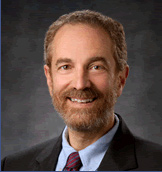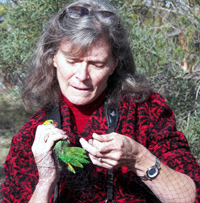Climate Change's Effects on Human and Ecosystem Health to be Discussed in January and February
Climate change's implications for both human health and natural ecosystems are the focus of the next two lectures in the yearlong Bioeconomy and Climate Change Distinguished Lecture Series, sponsored by the MAES.
 Climate change's implications for both human health and natural ecosystems are the focus of the next two lectures in the yearlong Bioeconomy and Climate Change Distinguished Lecture Series, sponsored by the MAES. The series is intended for all people working on climate change, both at MSU and outside the university.
Climate change's implications for both human health and natural ecosystems are the focus of the next two lectures in the yearlong Bioeconomy and Climate Change Distinguished Lecture Series, sponsored by the MAES. The series is intended for all people working on climate change, both at MSU and outside the university.
On Jan. 14, Howard Frumkin, of the U.S. Centers for Disease Control and Prevention (CDC), offers a public health perspective on climate change. Climate change can affect health through direct heat effects, severe weather events, infectious diseases, and water and food supply changes. Frumkin will review strategies for public health preparedness in the face of these challenges.
An internist, environmental and occupational medicine specialist and epidemiologist, Frumkin serves as director of the National Center for Environmental Health/Agency for Toxic Substances and Disease Registry at the CDC.
His talk will run from 1 to 2 p.m. Jan. 14 in Parlor C of the MSU Union. A reception follows.
On Feb. 4, Terry Root, senior fellow at the Woods Institute for the Environment at Stanford University and lead author of the ?Impacts and Vulnerabilities? chapter of the 2007 Intergovernmental Panel on Climate Change report , will describe how climate change affects animal populations. Her talk is scheduled for 12:30 to 1:30 p.m. in Parlor C of the MSU Union.
The lecture series is organized by Thomas Dietz, assistant vice president for environmental research, and Jinhua Zhao, MAES economics and agricultural economics researcher.
There is no charge to attend the lectures, but attendees are asked to preregister. For more information or to RSVP, visit the Distinguished Lecture website.



 Print
Print Email
Email




